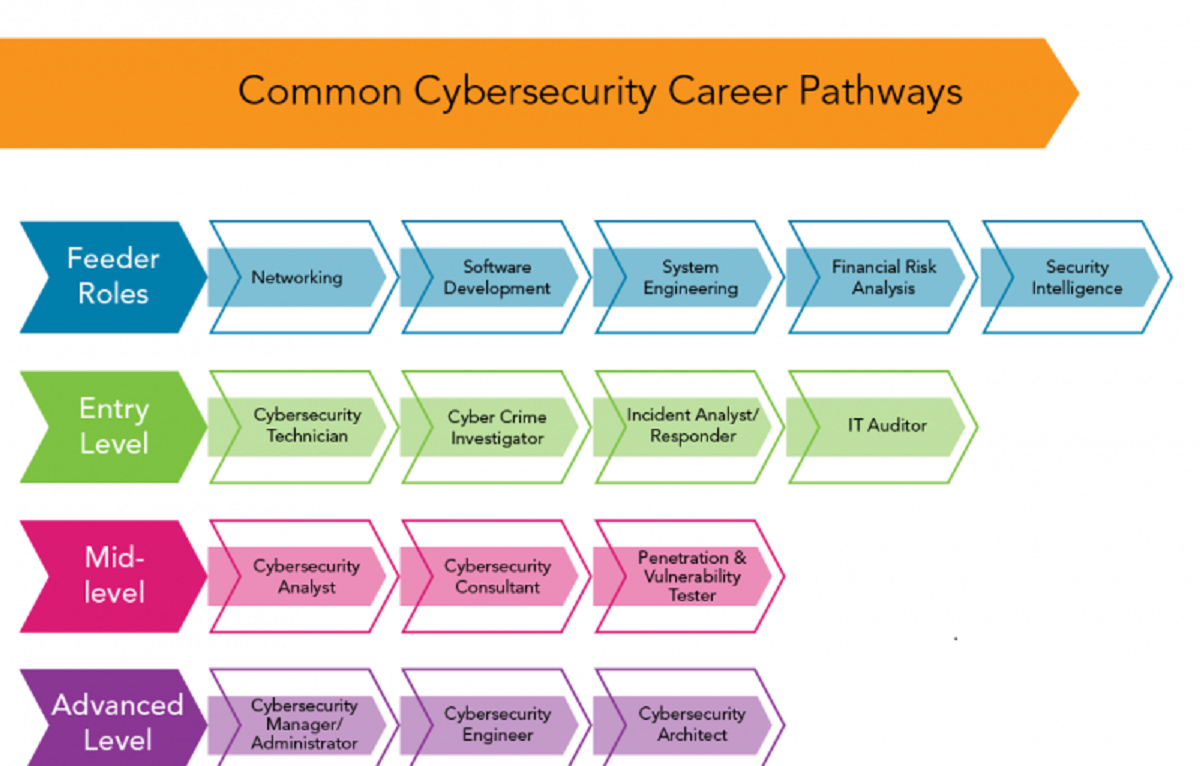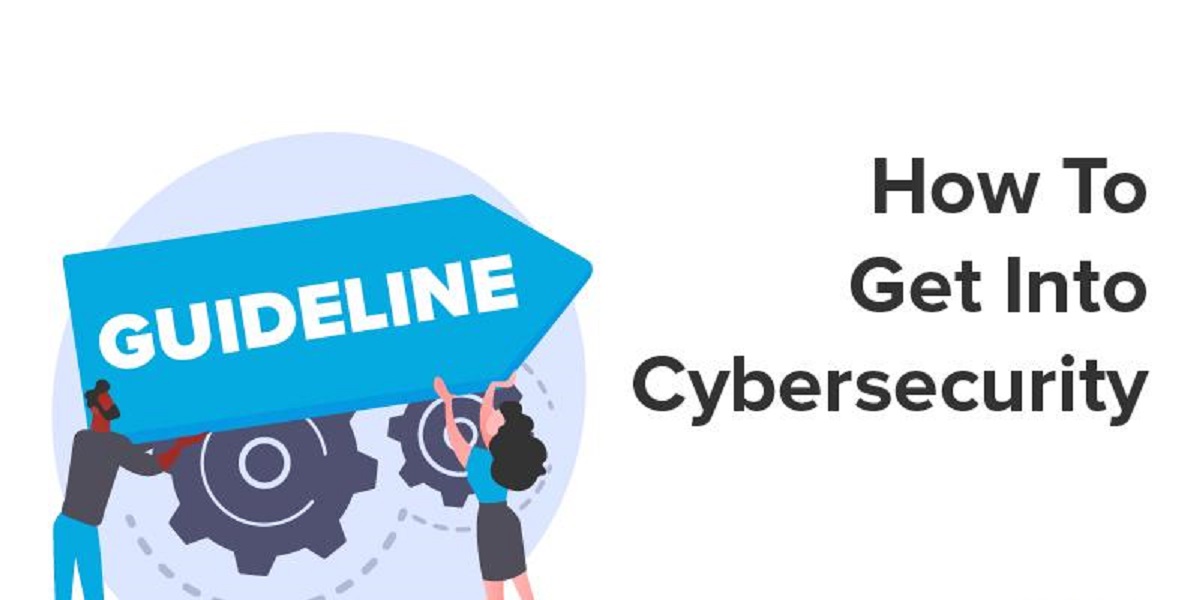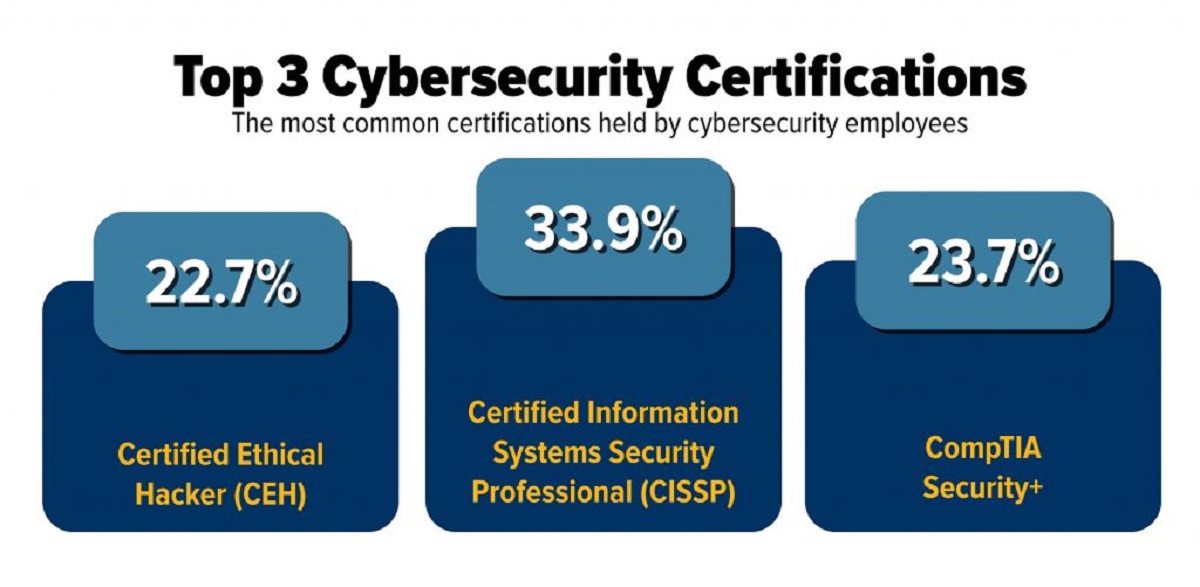Introduction
Cybersecurity is an ever-growing concern in today’s digital world, as technology continues to advance at a rapid pace. With the increasing number of cyber threats and data breaches, organizations are realizing the importance of having robust security measures in place. This has created a high demand for professionals skilled in cybersecurity.
A career in cybersecurity offers a wide range of opportunities to contribute meaningfully to the protection of digital assets and sensitive information. Cybersecurity professionals are responsible for identifying and mitigating potential threats, ensuring the confidentiality, integrity, and availability of data and systems. They play a crucial role in safeguarding organizations against cyber attacks and providing secure environments for users.
In this article, we will explore some of the most prominent careers that relate to cybersecurity. These career paths offer diverse roles and responsibilities, allowing individuals to specialize in their area of interest within the cybersecurity field. Whether you have a passion for analyzing vulnerabilities, uncovering security breaches, or designing robust security frameworks, there is a role that will suit your skills and interests.
It’s important to note that the field of cybersecurity is constantly evolving. With new threats emerging every day, professionals in this field need to stay up to date with the latest technologies, trends, and best practices to effectively protect organizations and individuals from cyber threats. Additionally, certifications such as Certified Information Systems Security Professional (CISSP) and Certified Ethical Hacker (CEH) are highly regarded and can elevate your career prospects in the cybersecurity industry.
Now, let’s delve into the various careers that are closely related to cybersecurity. Each of these roles plays a unique part in defending against cyber threats and preserving the integrity of digital systems and information.
Security Analyst
A security analyst is a crucial role in the cybersecurity field. These professionals are responsible for monitoring and assessing the security of computer systems, networks, and applications. Their primary objective is to identify vulnerabilities and potential threats, as well as develop strategies to mitigate risks.
Security analysts perform regular scans and tests to identify any weaknesses in the organization’s security infrastructure. They analyze security logs and reports to detect any unusual activities or intrusions. By staying vigilant and proactive, security analysts can prevent security breaches and minimize damage that may occur.
To excel in this role, security analysts need to have a strong understanding of cybersecurity principles and best practices. They must be adept at using security tools and technologies to identify and respond to threats effectively. Analytical thinking and problem-solving skills are also essential for successful security analysts, as they need to analyze vast amounts of data to identify patterns and potential vulnerabilities.
Furthermore, security analysts need to stay up to date with the latest cyber threats and hacking techniques to develop countermeasures accordingly. They may also be involved in creating and implementing security policies and procedures to ensure compliance with industry regulations.
Overall, a career as a security analyst is an excellent choice for individuals interested in identifying and preventing cyber threats. It offers the opportunity to work with cutting-edge technologies and make a significant impact in protecting organizations from security breaches.
Ethical Hacker
An ethical hacker, also known as a white hat hacker, is a cybersecurity professional who specializes in identifying vulnerabilities within systems and networks. Unlike malicious hackers (black hat hackers), ethical hackers use their skills and knowledge to help organizations strengthen their security and protect against cyber attacks.
Ethical hackers are authorized to simulate real-world cyber attacks to expose weaknesses in an organization’s systems and infrastructure. By doing so, they provide valuable insights that enable organizations to patch vulnerabilities and enhance their security measures.
To become an ethical hacker, individuals need to have a deep understanding of various hacking techniques and cybersecurity principles. They must be able to think like a hacker to anticipate attack vectors and identify potential vulnerabilities. Ethical hackers often use a combination of manual and automated tools to perform penetration testing and vulnerability assessments.
One of the key skills of an ethical hacker is the ability to effectively communicate and document their findings. They need to provide organizations with detailed reports on the identified vulnerabilities, along with recommendations on how to remediate them. This requires strong analytical and problem-solving skills, as well as the ability to clearly articulate technical concepts to non-technical stakeholders.
Ethical hackers also play a critical role in staying ahead of the ever-evolving threat landscape. They continuously research new hacking techniques, analyze emerging vulnerabilities, and stay up to date with the latest security measures. This ensures that organizations can proactively protect themselves against potential attacks.
A career as an ethical hacker offers exciting challenges and the opportunity to make a positive impact in the field of cybersecurity. This role helps organizations identify and address vulnerabilities before malicious hackers can exploit them, ultimately contributing to a safer digital environment.
Cryptographer
A cryptographer is a cybersecurity professional who specializes in the study and development of cryptographic systems. Cryptography involves the use of mathematical algorithms to secure data and communications by converting it into an unreadable format, which can only be deciphered by authorized parties with the encryption keys.
Cryptographers play a crucial role in ensuring the confidentiality, integrity, and authenticity of sensitive information. They develop and analyze cryptographic algorithms and protocols to protect data from unauthorized access and manipulation, making it an essential component of modern-day cybersecurity.
One of the main responsibilities of a cryptographer is to design encryption algorithms and cryptographic protocols. They need to have a strong understanding of mathematical principles and computer science concepts to develop secure and efficient cryptographic systems. Additionally, cryptographers must stay up to date with advancements in technology and constantly evaluate and improve existing cryptographic standards.
Moreover, cryptographers are involved in analyzing existing cryptographic systems for vulnerabilities and weaknesses. By analyzing encryption algorithms and protocols, they can identify potential threats and develop countermeasures to enhance the security of these systems. They also work closely with other cybersecurity professionals to ensure that cryptographic solutions are integrated effectively into larger security frameworks.
Cryptography plays a vital role in various industries, including finance, healthcare, and government sectors. Cryptographers can work for organizations that handle sensitive data and require stringent security measures. They may also collaborate with law enforcement agencies or intelligence organizations in developing techniques to combat cybercrime and protect national security.
As technology continues to advance, the field of cryptography evolves along with it. Cryptographers need to continuously update their knowledge and skills to stay ahead of emerging threats and advancements in computing power. This profession offers exciting opportunities for those who have a passion for mathematics, computer science, and a commitment to safeguarding sensitive information.
Incident Responder
An incident responder is a cybersecurity professional who is responsible for investigating and responding to security incidents within an organization. Their primary role is to identify and mitigate the impact of security breaches, minimize downtime, and restore normal operations.
When a security incident occurs, such as a data breach or a malware attack, incident responders act as the first line of defense. They are skilled in recognizing and analyzing the signs of an attack, determining the scope of the incident, and taking immediate action to contain and eradicate the threat.
Incident responders work closely with security analysts, system administrators, and network engineers to coordinate the response efforts. They gather and preserve evidence for forensic analysis, document the incident details, and provide updates to relevant stakeholders, including management and legal teams.
One of the critical skills of an incident responder is the ability to think and act quickly under pressure. They must have a deep understanding of various cyber threats and attack methods, as well as the technical knowledge to troubleshoot and resolve security incidents effectively.
Additionally, incident responders need to have strong communication and interpersonal skills. They often liaise with external organizations, such as law enforcement agencies and cybersecurity vendors, to gather intelligence or seek assistance in mitigating the incident. The ability to communicate technical information clearly to non-technical personnel is crucial in this role.
To excel as an incident responder, continuous learning is essential. Cyber threats and attack vectors are constantly evolving, and incident responders need to stay up to date with the latest trends and mitigation techniques. Participating in cybersecurity conferences, obtaining relevant certifications, and engaging in hands-on training exercises can help enhance their skills and proficiency.
A career as an incident responder is challenging yet fulfilling. It requires a passion for problem-solving, attention to detail, and the ability to work well in high-stress situations. By efficiently responding to security incidents, incident responders play a vital role in minimizing the damage caused by cyber attacks and ensuring the resilience of the organization’s security infrastructure.
Security Architect
A security architect is a cybersecurity professional who designs and implements secure systems and networks. They are responsible for creating robust security frameworks that protect an organization’s digital assets, including data, applications, and network infrastructure.
Security architects play a critical role in determining the overall security strategy for an organization. They collaborate with stakeholders, including IT teams, management, and other cybersecurity professionals, to understand business requirements and develop security solutions that align with organizational goals.
One of the main responsibilities of a security architect is to assess potential risks and vulnerabilities in existing systems and networks. They evaluate the effectiveness of existing security measures and identify areas for improvement. Based on their analysis, they design and implement security controls and measures to mitigate the identified risks.
To excel in this role, security architects need to have a strong understanding of security principles, frameworks, and technologies. They must be familiar with industry best practices and standards, such as ISO 27001 and NIST Cybersecurity Framework, and apply them effectively in their designs.
Security architects also need to stay up to date with emerging technologies and trends in the cybersecurity landscape. This includes understanding cloud security, mobile security, and Internet of Things (IoT) security, as these technologies present unique challenges and vulnerabilities.
Furthermore, security architects need strong analytical and problem-solving skills. They must be able to analyze complex systems and identify potential security gaps. They also need to have excellent communication skills to effectively convey security requirements and recommendations to stakeholders at various levels of the organization.
A career as a security architect offers opportunities to drive change and make a significant impact on an organization’s security posture. Security architects play a vital role in ensuring that systems and networks are designed with security in mind, helping to protect against cyber threats and safeguard valuable assets.
Forensic Expert
A forensic expert, also known as a digital forensic analyst, is a cybersecurity professional who specializes in investigating and analyzing digital evidence to uncover and solve cybercrimes. They play a crucial role in collecting, preserving, and analyzing data from various digital sources, such as computers, smartphones, and networks, to support legal proceedings and incident response efforts.
Forensic experts use advanced techniques and tools to retrieve and examine data from compromised systems, identify the extent of an attack, and trace the origins of the breach. They follow strict protocols to ensure the integrity and admissibility of the evidence, working closely with law enforcement agencies and legal professionals.
In addition to investigating cybercrimes, forensic experts also assist with incident response efforts. They analyze systems and networks to identify the cause of security breaches, determine the extent of the damage, and develop strategies for recovery. Their expertise is invaluable in providing insights into how an incident occurred and helping organizations strengthen their defenses to prevent future attacks.
Forensic experts need to have a strong understanding of computer systems, networks, and software, as well as proficiency in forensic tools and techniques. They must stay up to date with evolving digital forensic practices and be familiar with relevant laws and regulations relating to digital evidence and cybersecurity.
Attention to detail, critical thinking, and problem-solving skills are essential for forensic experts. They need to carefully analyze and interpret complex data, identify patterns and anomalies, and present their findings in a clear and concise manner. Strong communication and collaboration skills are also necessary, as forensic experts often work closely with law enforcement agencies, legal professionals, and other cybersecurity experts.
A career as a forensic expert offers exciting challenges and the opportunity to make a significant impact in the field of cybersecurity. By investigating and analyzing digital evidence, forensic experts contribute to the identification and prosecution of cybercriminals, and help organizations strengthen their security measures to prevent future incidents.
Security Consultant
A security consultant is a cybersecurity professional who provides expert advice and guidance to organizations on their security strategies and practices. They evaluate an organization’s existing security infrastructure, identify weaknesses, and recommend improvements to enhance overall security posture.
Security consultants work closely with clients to understand their specific security needs and objectives. They assess potential risks and vulnerabilities, conduct security audits, and develop customized solutions to address identified issues. Their recommendations encompass various aspects of cybersecurity, including network and system security, data protection, access controls, and incident response.
One of the key responsibilities of a security consultant is to stay updated with the latest threats and emerging security trends. They continuously research and analyze new attack vectors and vulnerabilities in order to provide informed recommendations to their clients.
Strong analytical and problem-solving skills are essential for security consultants. They need to be able to assess complex systems and identify potential security gaps. Additionally, excellent communication skills are vital in order to effectively convey security recommendations to clients, who may not have a technical background.
A career as a security consultant offers the opportunity to work with a diverse range of clients and industries. Consultants may work for specialized cybersecurity firms or as independent professionals, providing their expertise to organizations of all sizes and across various sectors.
Security consultants may also have the opportunity to lead or participate in training sessions and workshops to educate organizations on security best practices and raise awareness about cybersecurity threats.
Overall, security consultants play a critical role in helping organizations improve their security measures and mitigate risks. They provide valuable insights and recommendations that enable organizations to proactively address security vulnerabilities and protect their digital assets.
Security Engineer
A security engineer is a cybersecurity professional who designs, implements, and manages the security infrastructure of an organization. They play a crucial role in ensuring the confidentiality, integrity, and availability of systems and data by developing and deploying robust security solutions.
Security engineers are responsible for identifying potential vulnerabilities, assessing risks, and implementing controls to protect against cyber threats. They work closely with other IT teams to integrate security measures into the design and implementation of systems and networks.
One of the main responsibilities of a security engineer is to implement and manage security controls and technologies. They configure firewalls, intrusion detection systems, and other security tools to monitor network traffic and detect potential breaches. Security engineers also conduct regular vulnerability assessments and penetration tests to identify weaknesses and proactively address them.
In addition to implementing security measures, security engineers also play a crucial role in incident response and handling security incidents. They investigate security breaches, analyze data to understand the scope and impact of the incident, and work to restore normal operations.
To excel in this role, security engineers need to have a deep understanding of cybersecurity principles, as well as knowledge of network protocols, operating systems, and programming languages. They must stay updated with the latest threats and security technologies to effectively protect against evolving cyber threats.
Strong problem-solving skills and attention to detail are essential for security engineers. They need to be able to analyze complex systems, identify potential security gaps, and develop and implement effective solutions.
Communication skills are also important for security engineers, as they often collaborate with various stakeholders, including IT teams, management, and external vendors. They may need to explain technical concepts to non-technical personnel and provide guidance on security best practices.
A career as a security engineer offers exciting challenges and the opportunity to make a significant impact in the field of cybersecurity. These professionals play a critical role in strengthening an organization’s security infrastructure and protecting against cyber threats.
Penetration Tester
A penetration tester, also known as an ethical hacker, is a cybersecurity professional who specializes in identifying vulnerabilities in computer systems, networks, and applications. Their role is to simulate real-world cyber attacks to assess an organization’s security posture and provide recommendations for improvement.
Penetration testers use a combination of manual and automated techniques to identify weaknesses that could potentially be exploited by malicious actors. They conduct thorough assessments to uncover vulnerabilities in web applications, networks, and infrastructure.
One of the main responsibilities of a penetration tester is to perform penetration testing, also known as ethical hacking. This involves attempting to exploit vulnerabilities to gain unauthorized access or manipulate systems. By doing so, penetration testers expose potential security risks and provide comprehensive reports outlining the identified vulnerabilities and suggested remediation steps.
To excel in this role, penetration testers need a deep understanding of various hacking techniques, as well as knowledge of network protocols, operating systems, and security tools. They stay up to date with the latest attack vectors and emerging security vulnerabilities in order to effectively evaluate and test an organization’s security controls.
Strong analytical and problem-solving skills are essential for penetration testers. They must be able to think like a hacker, anticipate potential attack vectors, and creatively find ways to penetrate an organization’s defenses. Attention to detail is also crucial to ensure that no vulnerabilities are overlooked.
Penetration testers must have strong communication skills. They often work closely with IT teams, system administrators, and management to convey complex technical information in a clear and concise manner. They provide detailed reports and recommendations for addressing identified vulnerabilities, highlighting areas for improvement.
A career as a penetration tester offers exciting challenges and the opportunity to contribute to improving an organization’s security. By identifying weaknesses and providing actionable recommendations, penetration testers play a critical role in helping organizations fortify their defenses against real-world cyber threats.
Cybersecurity Manager
A cybersecurity manager is a leadership role in the field of cybersecurity, responsible for overseeing and managing an organization’s cybersecurity program. They play a critical role in ensuring the organization’s information systems and digital assets are protected from cyber threats.
Cybersecurity managers are responsible for developing and implementing comprehensive security strategies, policies, and procedures. They work closely with stakeholders to understand business objectives and align cybersecurity initiatives accordingly. By assessing risks and identifying potential vulnerabilities, they create a roadmap for strengthening the organization’s security posture.
One of the key responsibilities of a cybersecurity manager is to lead a team of cybersecurity professionals. They hire and train the right talent, assign responsibilities, and provide guidance to ensure that the team operates efficiently and effectively. Cybersecurity managers also mentor and support their team members in their professional growth.
Cybersecurity managers need to stay up to date with the latest threats and emerging trends in the cybersecurity landscape. They continuously monitor the organization’s systems and networks to identify potential security breaches and proactively respond to incidents. They collaborate with other IT teams, management, and external stakeholders to ensure the organization’s security goals are met.
Apart from technical expertise, cybersecurity managers need strong leadership and communication skills. They must be able to communicate effectively with both technical and non-technical stakeholders, including executives and board members. They also need to advocate for cybersecurity initiatives and secure support and resources from management.
Cybersecurity managers play a pivotal role in driving change and creating a culture of security within the organization. They ensure compliance with legal and regulatory requirements, conduct security awareness training programs, and promote a proactive approach to cybersecurity throughout the organization.
A career as a cybersecurity manager offers opportunities to make a significant impact in the field of cybersecurity. These professionals are instrumental in establishing and maintaining robust security measures, protecting valuable assets, and mitigating cyber risks for the organization.
Conclusion
The field of cybersecurity offers a diverse range of careers, each playing a crucial role in protecting digital assets and combating cyber threats. From security analysts and ethical hackers to forensic experts and cybersecurity managers, these professionals contribute to the security and resilience of organizations in different ways.
Security analysts monitor, assess, and mitigate potential threats, while ethical hackers help organizations identify vulnerabilities through simulated attacks. Cryptographers develop and analyze cryptographic systems to secure data and communications, and incident responders play a critical role in investigating and responding to security incidents.
Security architects design and implement secure systems, while forensic experts analyze digital evidence to uncover cybercrimes. Security consultants provide expert advice to organizations on security strategies, and security engineers implement and manage security infrastructure. Lastly, penetration testers simulate real-world cyber attacks to identify vulnerabilities.
Each career within the cybersecurity field requires a unique set of skills and expertise. However, there are common traits shared by all cybersecurity professionals, such as strong analytical thinking, problem-solving skills, and the drive to continuously learn and stay updated with the latest cybersecurity trends.
The demand for cybersecurity professionals is on the rise, as organizations realize the importance of robust security measures in the digital age. Whether you are passionate about preventing cyber threats, investigating security incidents, designing secure systems, or providing expert advice, there is a cybersecurity career that suits your interests and skill set.
As technology continues to advance, cybersecurity will remain a critical field with new challenges and opportunities. By pursuing a career in cybersecurity, you have the chance to make a meaningful impact in protecting digital assets and contributing to a safer online environment.

























